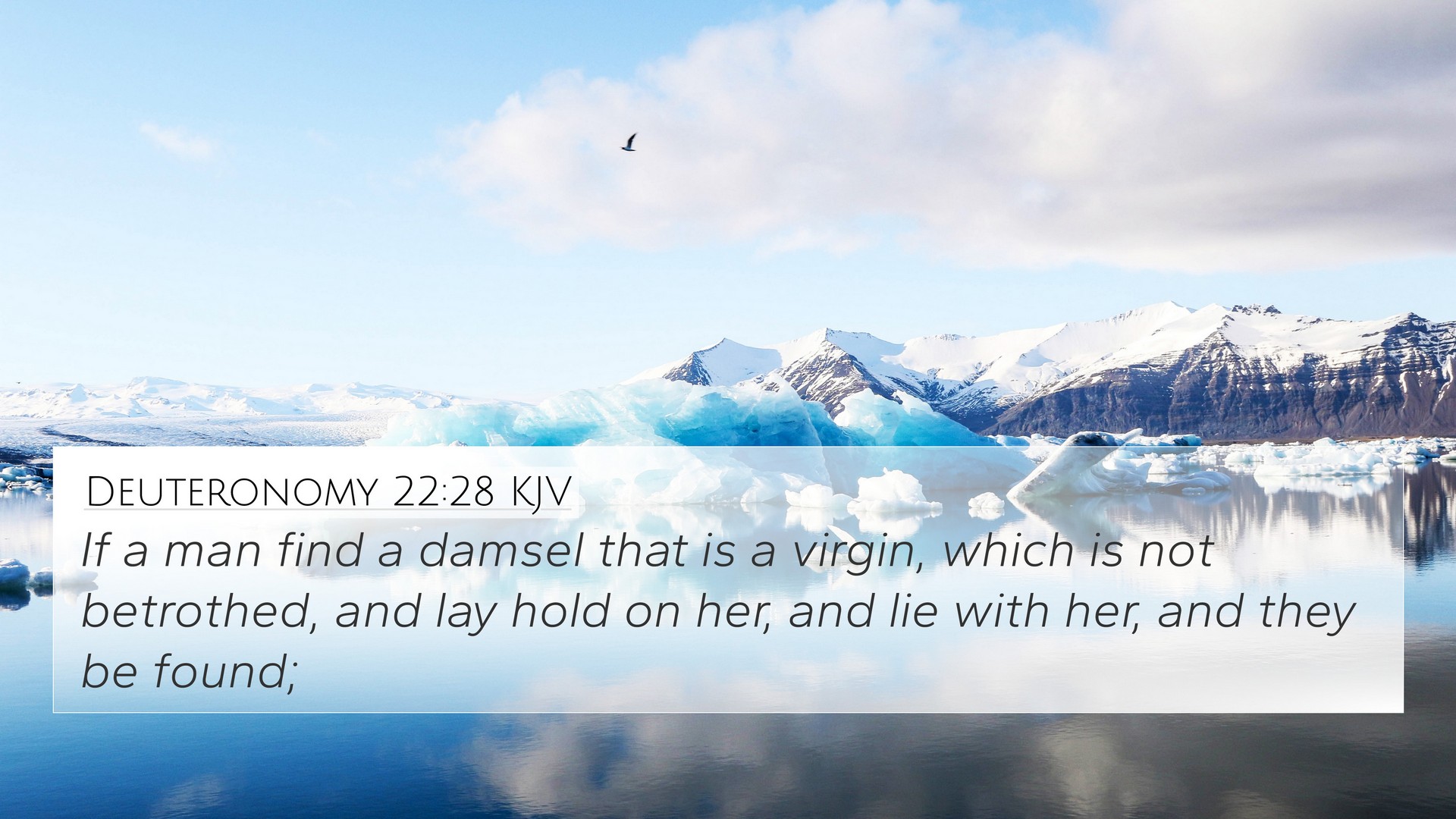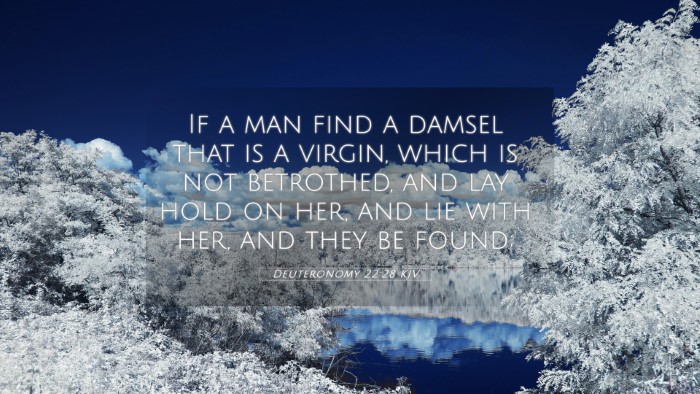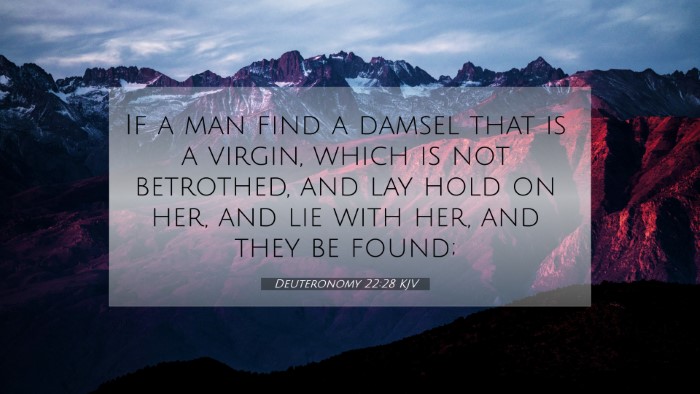Understanding Deuteronomy 22:28
Deuteronomy 22:28 states: "If a man finds a young woman who is a virgin, who is not betrothed, and he seizes her and lies with her, and they are discovered," (NKJV). This verse addresses the issue of sexual relations involving a virgin woman and captures the context of ancient Israelite law and morality.
Summary of Meaning
The verse provides insight into the social and moral fabric of Israelite society. In the cultural context, this law was designed to protect the rights of women and uphold their dignity. The societal expectations surrounding marriage and virginity are significant themes throughout Scripture, bridging connections to both the Old and New Testaments.
Insights from Public Domain Commentaries
Matthew Henry's Commentary
Matthew Henry emphasizes that this commandment signifies the seriousness of honoring and respecting women. He discusses the importance of marital fidelity and the consequences of illicit relationships, concluding that the regulations provided serve a protective purpose for both parties involved.
Albert Barnes' Notes
Albert Barnes interprets the directive as a measure to ensure that wrongful acts do not go unpunished. He highlights the cultural significance of a woman's virginity in ancient Israel, which was considered precious and sacred. Barnes also notes the potential for comparison with the concept of marriage vows and the sanctity surrounding committed relationships.
Adam Clarke's Commentary
Adam Clarke provides a broader view, linking this verse to the themes of divine justice and societal order. He explains that the laws were given to establish proper conduct among the people and ensure social justice, emphasizing that transgressions have specific ramifications which highlight God’s desire for righteousness among His people.
Cross-References to Deuteronomy 22:28
There are several important verses that relate to Deuteronomy 22:28, which provide a clearer understanding of its context and implications. These include:
- Exodus 22:16-17: Discusses the consequences for seducing a virgin.
- Deuteronomy 22:23-24: Addresses the punishment for adultery involving a betrothed woman.
- Leviticus 21:9: Details the consequences for a priest's daughter who engages in prostitution.
- 1 Corinthians 6:18-20: Discusses immorality and the importance of sexual purity in the New Testament context.
- Hebrews 13:4: Affirms the sanctity of marriage and the seriousness of sexual misconduct.
- Matthew 5:27-28: Connects adultery to lustful thoughts, raising the standard of moral conduct.
- Deuteronomy 24:1-4: Explains the context of marriage and divorce which impacts a woman's status after sexual relations.
Thematic Bible Verse Connections
In examining Deuteronomy 22:28, we uncover thematic connections that reach across the Bible. The concepts of sexual ethics, the treatment of women, and societal responsibilities are recurrent elements found from Genesis through Revelation.
Inter-Biblical Dialogue
This verse highlights the ongoing dialogue within Scripture regarding human relationships, and it encourages reflection on how biblical principles apply today. From the view of comparative Bible verse analysis, we can explore how different scriptures interact to provide a comprehensive understanding of moral obligations and divine law.
Conclusion
Deuteronomy 22:28 serves as a critical touchstone in understanding the values surrounding sexual conduct, societal justice, and gender considerations in the Bible. By utilizing cross-referencing techniques and thematic connections, deeper insights can be gleaned that enhance our comprehension of Biblical teachings. This verse, like many others, invites readers to consider its historical context while exploring its relevance in contemporary discussions about morality, relationships, and justice.



